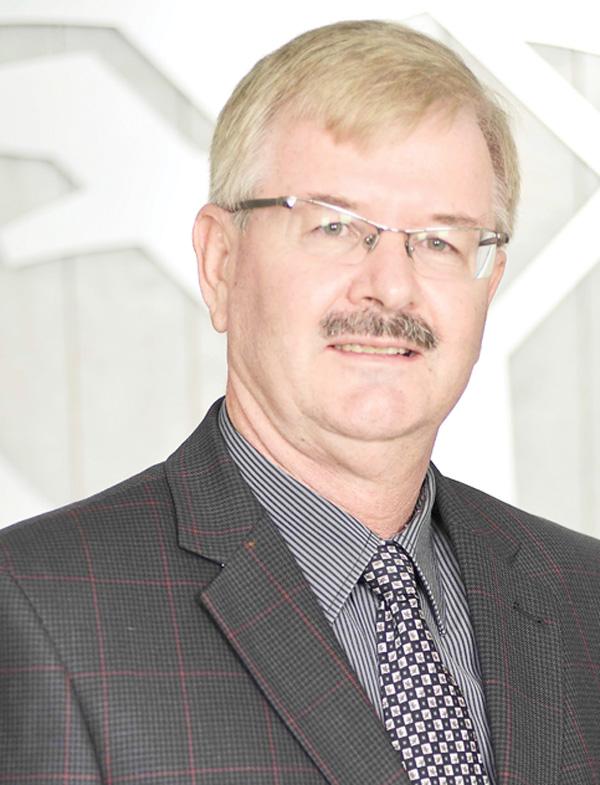
Namibian scientist to initiate first whole-genome sequencing of TB

By Clifton Movirongo.
The country awaits the implementation and functionalization of its first-ever whole genome sequencing of Tuberculosis (TB), as for now the much-anticipated technology platform is underway but only for research purposes.
This will be courtesy of Dr Emmanuel Nepolo, a health professional educator and research scientist, who currently serves as a senior lecturer and Head of Department at the School of Medicine faculty in the University of Namibia.
Nepolo was chosen in 2020 as the Next Einstein Forum (NEF) Ambassador for Namibia after being selected by a panel of eminent scientists including members of the forum’s Scientific Programme Committee.
One from each African country and under 42 years of age, all NEF ambassadors drive the NEF’s local public engagement activities while growing their careers through the NEF’s partnerships that offer opportunities for mentorship and collaborations with established researchers.
Dr Nepolo started working on the technology as far back as 2015 when he set up a laboratory at the School of Medicine to conduct his work.
In an interview with the Economist, Nepolo said that his plan is to use the platform for diagnostic purposes, adding that he developed the sequencing technology to decipher the spread of resistant TB strains in Namibia. His research also focusses on the mechanisms of transmission and development of the disease.
“How it works is, you take a specimen or sample from a patient and run it on the machine and the technology should be able to tell you that the specific patient is resistant to a, b, c or d antibiotics which are used to treat TB,” he said.
He added that the sequencing platform can reveal between eight to ten antibiotics which are used to treat the disease, either a first-line or second-line antibiotic.
“To date, the project has been a success for us, and I think this is a tool that can be deployed or a service that I can offer to the Ministry of Health to test patients with severe TB drug resistance once everything is properly and scientifically proven and concluded,” the research scientist said.
Whole Genome Sequencing (WGS) is the process of reading the complete DNA sequence of an organism’s genetic material.
According to studies carried out, next-generation sequencing (NGS) approaches promise to become the future standard for drug susceptibility testing and epidemiological investigation in TB and for other high-priority bacterial pathogens. NGS allows researchers to generate millions of sequences of the genome in a short amount of time.
NG-WGS in TB diagnosis rapidly shows the exact type of Mycobacterium tuberculosis affecting one patient.
“The use of NG-WGS will transform and accelerate the delivery of personalized treatment to patients affected by TB, thus revolutionizing the way TB is diagnosed and treated,” Nepolo revealed.
This comes as, for years, clinical microbiology laboratories have relied on the use of conventional phenotypic and genotypic methods for species identification, detection of antibiotic resistance and studying transmission of bacteria responsible for hospital or community-acquired infections.
Namibia has a case notification rate of 442 cases per 100, 000 and is ranked fifth among countries with the highest burden of TB.
TB is transmitted in airborne particles when people who are sick with pulmonary TB expel bacteria by coughing or sneezing. Around the world, over 4,300 people die from TB everyday and nearly 30,000 people fall ill with this disease. Higher rates of infection are found in low- and middle-income countries.
Drug-resistant TB is considered a main cause of global morbidity and mortality related to antimicrobial resistance. Multidrug-resistant (MDR) and extensively drug-resistant (XDR) forms are hampering TB control and clinical management, with treatment success of 54% and 30% for MDR- and XDR-TB, respectively, compared to 83% for susceptible forms.
Implementing NGS in TB clinical laboratories is complex and involves strategic planning, procurement, budgeting, sample referral systems, standard operating procedures, quality assurance, data management, and human resource considerations.
Nepolo’s project is an externally funded project, with collaboration from the Research Center Borstel in Germany.
Additionally, scale-up of sequencing laboratories requires adequate infrastructure: areas for sample preparation; a molecular biology environment; power supply; favourable environmental conditions; network and internet connections; and computing capacity.









































